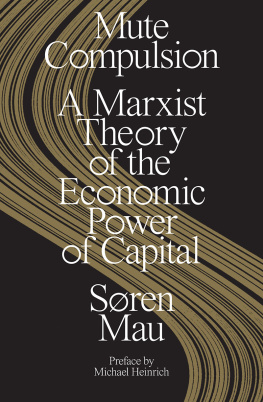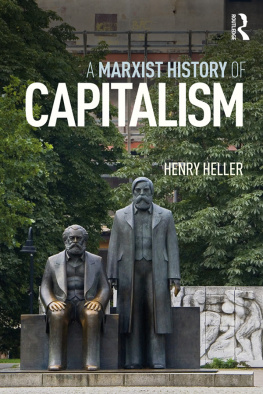First published by Zero Books, 2017
Zero Books is an imprint of John Hunt Publishing Ltd., Laurel House, Station Approach, Alresford, Hants, SO24 9JH, UK
www.johnhuntpublishing.com
www.zero-books.net
For distributor details and how to order please visit the Ordering section on our website.
Text copyright: Edmund Berger 2016
ISBN: 978 1 78535 500 4
978 1 78535 501 1 (ebook)
Library of Congress Control Number: 2016941211
All rights reserved. Except for brief quotations in critical articles or reviews, no part of this book may be reproduced in any manner without prior written permission from the publishers.
The rights of Edmund Berger as author have been asserted in accordance with the Copyright, Designs and Patents Act 1988.
A CIP catalogue record for this book is available from the British Library.
Design: Stuart Davies
Printed and bound by CPI Group (UK) Ltd, Croydon, CR0 4YY, UK
We operate a distinctive and ethical publishing philosophy in all areas of our business, from our global network of authors to production and worldwide distribution.
Introduction
In 2007, crisis struck the United States. The housing market, despite the insistences made by innumerable financial advisors and economists that it would continue to rise in value, bottomed-out. Following rapidly behind that were two additional houses of cards: on one hand, an increasingly monopolistic and interdependent system of financial capitalism, and on the other hand a wall of personal and corporate debt that had been mounting from the 1980s onward. If the mid-1990s were the boom-time of the New Economy as described by its most excited advocates then the mid-2000s marked its polar opposite. The national economy ground to a halt, while other economies bound up in this singular system began to crumble. As purchasing power collapsed in the United States, goods produced in export-oriented countries like China pooled up, gathering dust in factories, warehouses, and in the hulls of motionless transport ships. Commercial banks in Iceland defaulted and threw the country into a severe depression, while the financial contagion spread across Europe. It was there that the dominoes continued to fall: systemic problems in the economies of countries like Greece were peeled back, with emergency stabilization measures putting up roadblocks against effective alleviation means. Not all of this was the cause of the housing market of the United States it was something far more systemic and intrinsic to the nature of globalized, integrated capitalism.
In the years following the crisis, many things have happened. Dictatorial regimes in the Middle East fell and people swarmed city centers and squares across the world in a resolute rejection of the system that had nearly robbed them of their livelihoods. Left-wing governments came to power in the countries that were hit the hardest, tried to strike out in a different direction, and had their goals rigorously dismantled by international organizations. Bottom-up social and economic structures swelled in the cracks glossed over by the so-called recovery, and social-democratic leaders soared through the polls in countries where such an event was all but unimaginable.
These developments were met by near-opposite occurrences. Xenophobia and nationalism ripped through Europe, as the anger and fear created by the crisis was poured out on those deemed different. Far-right parties climbed up through the state apparatuses, and the sanctity of the border was declared against the flows of globalization. In the United States, right-wing populist sentiment organized first in support of libertarian policies intended to intensify the policies that aided in generating the crisis and when that failed they turned towards economic and social nationalism. They now demand like their European counterparts the end of the era of globalization. From the left to the right, it appears that the Washington Consensus on political, social, and economic structures is on its way out. Paradoxically, it still stands strong and is poised to reclaim itself against those who contest it, no matter the nature of their dissent.
Situated in the immediate environment created by all of these events, its easy to perceive them as random or freak occurrences. The crisis that officially began in 2007, from this perspective, appears as something unavoidable had the proper policies been put into place. The rise of a left-wing consciousness, and the right-wing counterrevolution, appear as aberrations, temporary deviations from business-as-usual politics. The debate becomes, by extension, not one of the nature of this business in and of itself, but how best to define the usualness of this business. What would happen, however, if one was to suggest that the crisis emerged from within the system, by the very nature of its operations, and that the dueling perspectives engendered by its breaking point are precisely what is to be expected, in one form or another? One would then, quite naturally, have to raise questions as to the character of the business in the first place.
The perspective that crisis can be contextualized within the orderly operations of the system is precisely the analysis of capitalism offered by Karl Marx (it is unsurprising, then, that sales of Marxs books skyrocketed during the crisis!). Now largely neglected by a neoclassical economic orthodoxy that abstracts its models away from historical process, Marx, building on the classical economists before him, was amongst the first to take seriously the idea of the economy as a complex system. Furthermore, unlike the majority of the neoclassicals, this economic system was determined to be coupled to the social, political, and even ecological systems that it was embedded in, acting upon them as much as being acted upon. Most importantly for our purposes here, Marxist theory both directly and indirectly lays out a toolbox for approaching the questions of our time.
The goal of this work is threefold, with one aspect being expressed in each of the three chapters. The first chapter is to elucidate some key parts of Marxs theory (as well as relevant non-Marxist perspectives) in an easy and readable manner, and illustrate how it applies to contemporary economic history from the Great Depression to the Great Recession. The second chapter is to turn to the so-called Washington Consensus itself, to look at how it unfolded from its humble beginnings in 1930s Europe to its application in the United States between the 1980s and today. Just as the first chapter will stress how the future of capitalism as we currently know it is extremely fragile, the second argues quite similarly that the Washington Consensus, itself welded to capitalisms evolution, is splintering apart. Finally, the third chapter will consider the relationship between the current socio-economic situation and various important concepts: fascism, social democracy, socialism, reform, and revolution.
It must be stressed that the current work is not a comprehensive introduction to Marxist theory, nor an exhaustive history of American politics and economics. I have chosen a handful of concepts that I feel are relevant to describing our immediate present. From Marx these include surplus value, the organic composition of capital, and the rate of profit and its tendency to fall. From other economists I have brought in long-wave theory, which has its roots in Marxist economics but is applied quite often outside its methodology. If I neglected a concept or did not elucidate a concept to the full extent of its theoretical dimensions, it is not because I feel that the concept is irrelevant, but merely beyond the scope of what Ive intended to be a rather short book. There are many brilliant writers, scholars, and activists who are doing paradigm-shifting research in the field of Marxist theory, and I would refer the interested reader to their efforts (alongside Marxs own texts) to gain a deeper understanding of the issues at hand. I have included these resources in the footnotes of each chapter.












